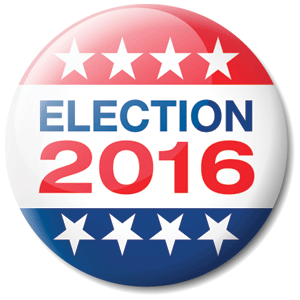Clinton calls for action on Garland without mentioning his name; Trump hits Ginsburg criticism

The presidential debate on Wednesday began with a two-part question about the U.S. Supreme Court.
“Where do you want to see the court take the country?” moderator Chris Wallace asked. (The Washington Post published a debate transcript.) “And secondly, what’s your view on how the Constitution should be interpreted? Do the founders words mean what they say, or is it a living document to be applied flexibly according to changing circumstances?”
The candidates’ answers would likely disappoint court watchers, SCOTUSblog reports, “as both candidates largely stuck to familiar talking points on two topics: gun rights and abortion.” Law.com (sub. req.) also has a story on the candidates’ comments about the U.S. Supreme Court.
Responding to Wallace’s question, Clinton said “the Supreme Court needs to stand on the side of the American people, not on the side of the powerful corporations and the wealthy. For me, that means that we need a Supreme Court that will stand up on behalf of women’s rights, on behalf of the rights of the LGBT community, that will stand up and say no to Citizens United.”
Clinton said the Senate should go forward with the confirmation process on Supreme Court nominee Merrick Garland, though she didn’t mention him by name.
Trump began by criticizing Justice Ruth Bader Ginsburg for her comments about him. “It is so imperative that we have the right justice. Justice Ginsburg made some very, very inappropriate statements towards me,” Trump said. She “was forced to apologize. And apologize she did. But these were statements that should never, ever have been made.”
Trump was referring to Ginsburg’s comments calling Trump “a faker” with an ego who “says whatever comes into his head at the moment.”
Trump went on to say that the country needs a Supreme Court that “is going to uphold the Second Amendment, and all amendments, but the Second Amendment, which is under absolute siege.” He also said that “the justices that I’m going to appoint will be pro-life. They will have a conservative bent. They will be protecting the Second Amendment. They are great scholars in all cases, and they’re people of tremendous respect. They will interpret the Constitution the way the founders wanted it interpreted. And I believe that’s very, very important.”
Wallace asked Clinton about her criticism of the U.S. Supreme Court decision in District of Columbia v. Heller, which found the Second Amendment protects an individual right to own a gun. Clinton responded that she supports the Second Amendment, but she also supports “reasonable regulation.”
“I disagreed with the way the court applied the Second Amendment” in Heller, Clinton said, “because what the District of Columbia was trying to do was to protect toddlers from guns and so they wanted people with guns to safely store them. And the court didn’t accept that reasonable regulation.”
Wallace later pressed Trump about whether he wants the Supreme Court to overturn Roe v. Wade. “Well, if we put another two or perhaps three justices on,” Trump said, “that’s really what’s going to be—that will happen. And that’ll happen automatically, in my opinion, because I am putting pro-life justices on the court. I will say this: It will go back to the states, and the states will then make a determination.”
Wallace also asked about “late term, partial-birth abortions” and Clinton’s vote against on ban on such procedures. Trump answered that Clinton’s position is that “in the ninth month, you can take the baby and rip the baby out of the womb of the mother just prior to the birth of the baby.”
Clinton responded that Trump was using “scare rhetoric” and it “is just terribly unfortunate.” She went on to say “the government has no business” in making the abortion decision.



